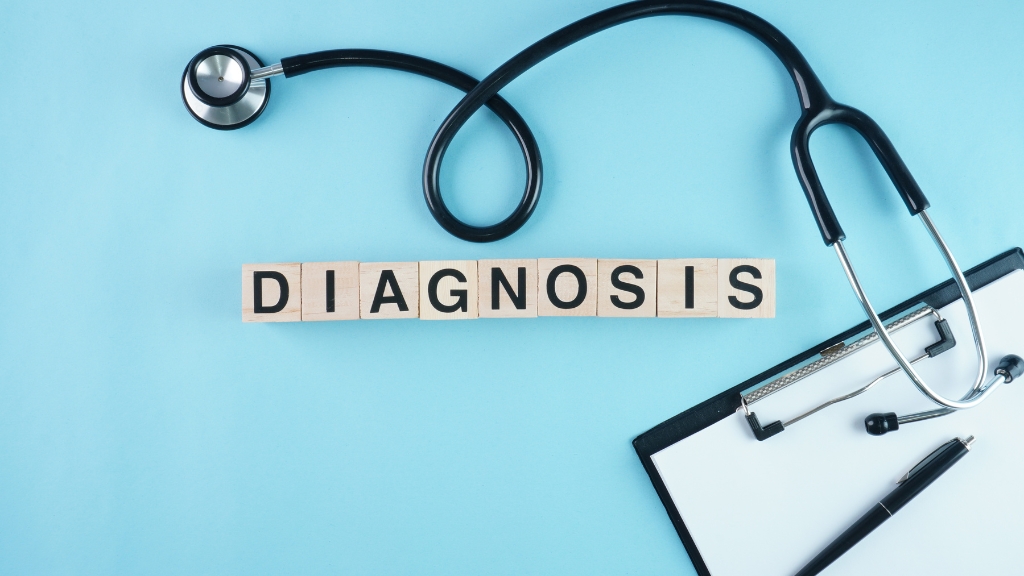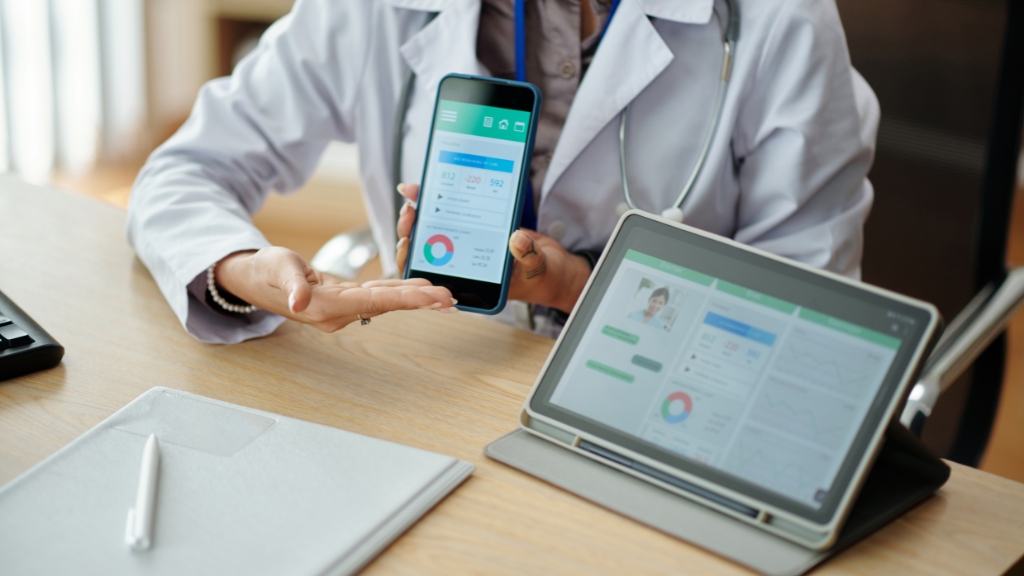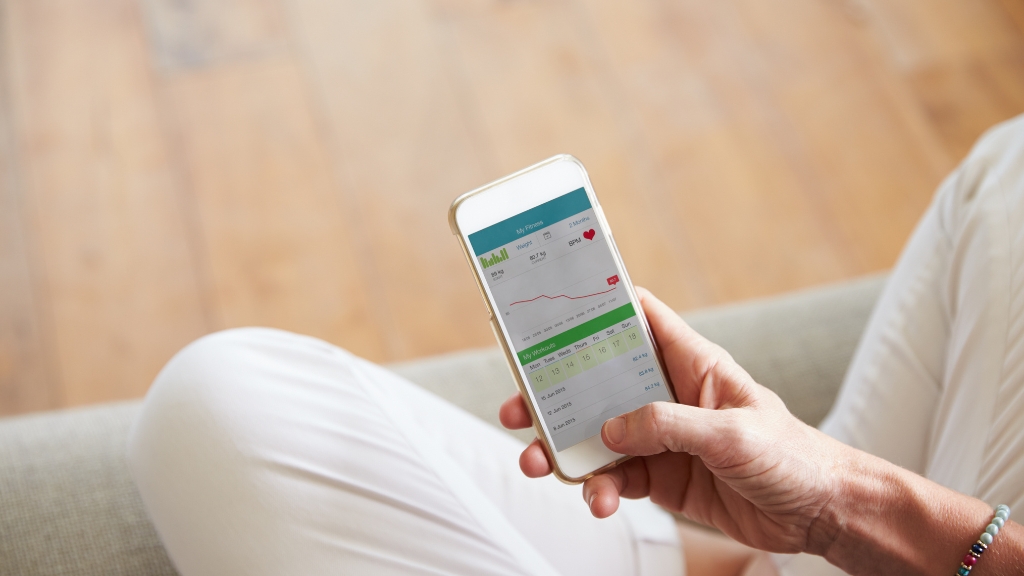
From Diagnosis to Treatment: How Healthcare Apps Support Every Step
Healthcare apps have revolutionized patient care by providing support at every stage, from early diagnosis to ongoing treatment and follow-up. These digital tools simplify access to medical resources, enhance treatment adherence, and enable continuous health monitoring, leading to better health outcomes. Below, we explore how healthcare apps empower users throughout the healthcare journey.
- Early Diagnosis and Symptom Tracking
Healthcare apps facilitate early diagnosis through symptom checkers and diagnostic tools, allowing users to self-assess their symptoms and seek medical advice sooner. For example, apps equipped with AI can analyze symptoms and health data to provide preliminary insights, helping patients determine if they need further evaluation from a healthcare provider. This proactive approach encourages early intervention, which can be crucial for managing chronic conditions.
Some healthcare apps also integrate with wearables to collect data on heart rate, activity levels, and sleep patterns, providing valuable insights into health trends that might indicate underlying issues. For example, apps used with smartwatches can alert users to irregular heart rhythms, prompting them to seek medical care before serious problems develop.
- Consultations and Diagnosis Confirmation
Once symptoms are recognized, telemedicine apps facilitate remote consultations with healthcare providers, making it easier for patients to obtain professional guidance without leaving home. These virtual consultations are especially beneficial for individuals in remote areas or those with mobility issues, providing equal access to quality healthcare.
During consultations, healthcare apps allow users to share real-time health metrics with doctors, enabling accurate diagnosis based on comprehensive data. For instance, an app linked to a glucose monitor can send a patient’s blood sugar data directly to the healthcare provider, who can then make informed decisions on managing diabetes.
- Personalized Treatment Plans
Healthcare apps play a significant role in developing and managing personalized treatment plans after diagnosis. They enable doctors to prescribe medications, recommend lifestyle changes, and outline steps for recovery, all within the app. Many healthcare apps offer features such as medication reminders, tracking tools, and educational resources to help patients stay on track.
Apps like Pulse IQ integrate electronic health records (EHRs) and real-time analytics, enabling healthcare providers to customize treatment plans based on a patient’s unique health profile. This data-driven approach improves the accuracy of treatment plans and allows adjustments based on the patient’s progress.
- Medication Management and Adherence
Ensuring medication adherence is essential for effective treatment, and healthcare apps support this by providing reminders and tracking tools. Some apps even allow users to set alarms for taking medications, reducing the risk of missed doses. By tracking medication intake, these apps give patients a better understanding of their treatment regimen and the importance of consistency in achieving positive results.
Additionally, apps may include drug interaction checkers, alerting users to potential risks if prescribed new medications. This feature adds another layer of safety, helping prevent adverse reactions.
- Ongoing Monitoring and Adjustments
Ongoing health monitoring is a significant advantage of healthcare apps, particularly for individuals managing chronic illnesses. Apps can track key health indicators, such as blood pressure, glucose levels, or physical activity, which is crucial for controlling hypertension and diabetes. For instance, a blood pressure monitoring app can help users log their readings daily and share them with their doctors, allowing quick adjustments.
Continuous monitoring allows healthcare providers to modify treatment plans in real-time, ensuring the best possible outcome. If a patient’s blood pressure readings consistently fall outside the recommended range, the doctor can adjust medication or lifestyle recommendations promptly.
- Patient Education and Self-Management Tools
Empowering patients with knowledge is a cornerstone of adequate healthcare, and healthcare apps excel in this area by providing easy access to educational content. Many apps offer articles, videos, and tips on managing specific health conditions, which can improve a patient’s understanding and encourage proactive health management.
For example, mental health apps may include:
- Cognitive behavioral therapy (CBT) exercises.
- Mindfulness practices.
- Strategies for managing anxiety or depression.
These resources allow patients to actively participate in their wellness actively, supplementing traditional therapy or treatment.
- Follow-Up Care and Support
After initial treatment, healthcare apps facilitate follow-up care by connecting patients with providers and helping them recover. For example, telemedicine platforms make it easy for patients to schedule follow-up appointments, discuss test results, and update their providers on symptoms without needing in-person visits. This continuity of care improves outcomes by ensuring that patients remain engaged with their treatment plans and receive timely support.
- Data Privacy and Security
Since healthcare apps handle sensitive personal health information, data privacy and security are essential. Most healthcare apps protect users’ data using encryption, secure authentication, and compliance with regulations such as HIPAA in the US. This focus on security builds trust, making users more comfortable sharing their health data through these platforms.
The Future of Healthcare Apps
We expect to see even more integrated and intelligent solutions as healthcare apps evolve. Advances in AI, machine learning, and wearable technology will make healthcare apps increasingly personalized, allowing them to predict health trends, recommend preventive measures, and facilitate early diagnosis. For instance, AI app algorithms could analyze genetic data and lifestyle factors to offer personalized health guidance tailored to an individual’s unique profile.
Conclusion
Healthcare apps support patients through every step of their healthcare journey, from symptom tracking and diagnosis to treatment, monitoring, and follow-up care. By providing personalized, data-driven insights, these apps empower users to take control of their health and make informed decisions, ultimately leading to better health outcomes. As technology advances, healthcare apps will play an even more critical role in shaping the future of healthcare, offering patients a seamless, accessible, and proactive approach to wellness.
FAQs
1. What types of healthcare apps are available?
Various healthcare apps exist, including telemedicine, symptom trackers, mental health apps, chronic disease management apps, and fitness apps, each serving unique healthcare needs.
2. How secure are healthcare apps?
Healthcare apps typically use encryption and authentication protocols and comply with data protection regulations, such as HIPAA, to ensure patient data security.
3. Can healthcare apps replace traditional in-person consultations?
While healthcare apps provide valuable support, they don’t fully replace in-person consultations. They are, however, excellent tools for routine monitoring, follow-ups, and virtual consultations.
4. How do healthcare apps aid in treatment adherence?
Healthcare apps help with medication reminders, treatment plan tracking, and monitoring health indicators, encouraging patients to adhere to their prescribed treatment regimens.
5. What role does AI play in healthcare apps?
AI in healthcare apps enables real-time data analysis, personalized insights, predictive analytics, and early symptom detection, enhancing the app’s capabilities to support comprehensive patient care.
Leave a Reply
- AI in Diagnostics: Revolutionizing Early Detection and Accuracy
- How AI and Advanced Analytics Are Transforming Healthcare Outcomes
- Investing with Confidence: The Role of ROI Calculators
- How ROI Calculators Drive Data-Driven Business Strategies
- The Ultimate Guide to ROI Calculators for Business Success
- Making Sense of ROI Calculators: A Comprehensive Guide
- June 2025 (1)
- May 2025 (1)
- October 2024 (2)
- September 2024 (31)
- August 2024 (31)
- July 2024 (27)
- June 2024 (28)
- May 2024 (30)
- April 2024 (33)
- March 2024 (23)
- February 2024 (29)
- January 2024 (3)
- December 2023 (47)
- November 2023 (36)
- October 2023 (23)
- September 2023 (2)
- June 2023 (2)
- May 2023 (13)
- April 2023 (1)




